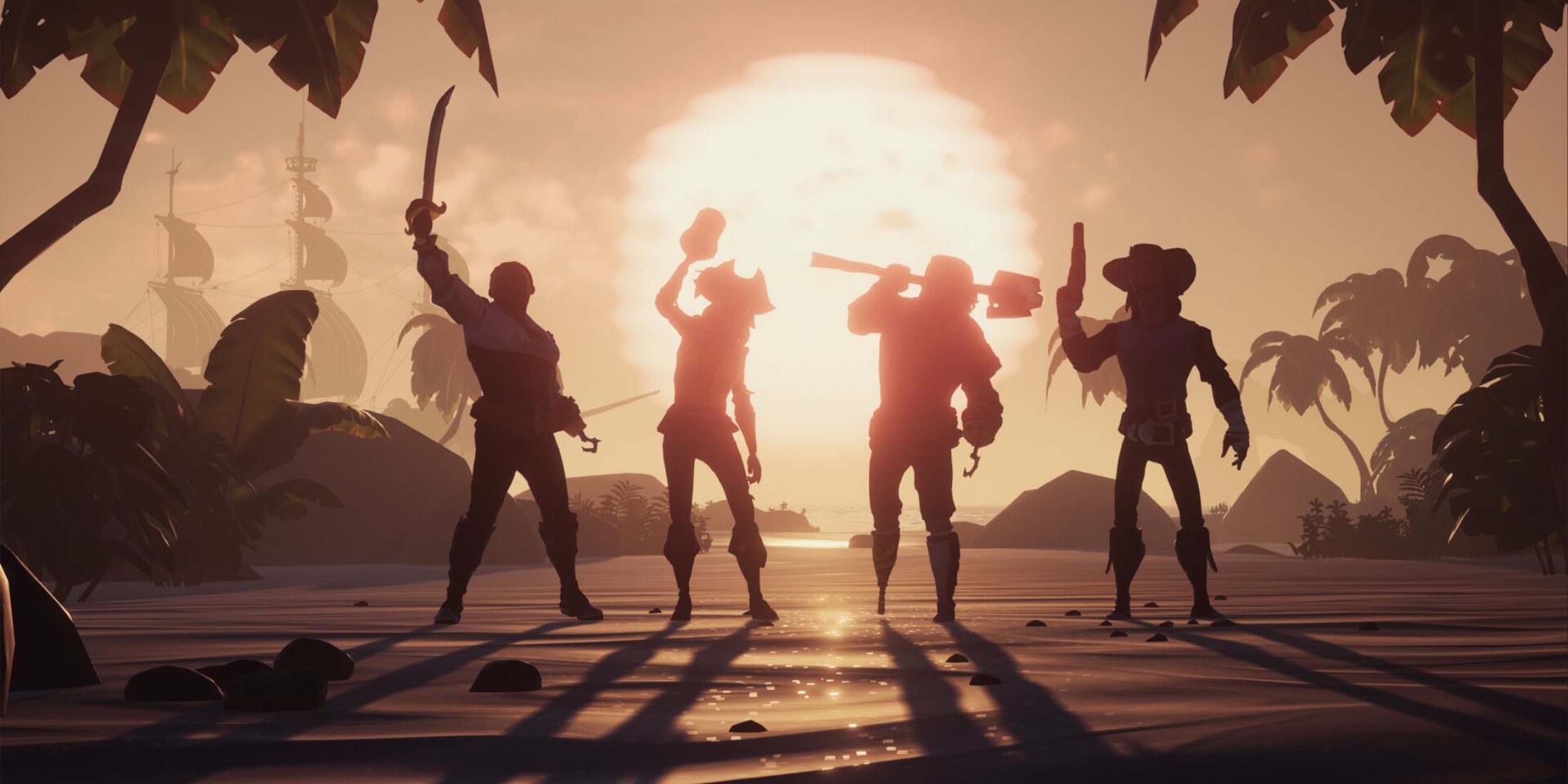Best Co-Op Games That Are Better With Strangers, Ranked
Description

Summary
- Some games shine when played with strangers, offering unpredictable chaos and unique interdependence.
- Accessible gameplay, nonverbal communication, and helpful communities enhance the experience.
- The thrill of unscripted teamwork, emergent roles, and unexpected challenges make co-op gaming with strangers unforgettable.
Most gamers have heard it a hundred times: “Co-op is always better with friends.” But for some games, the magic happens not in a Discord call with lifelong buddies, but in the unpredictable chaos of public lobbies and pick-up groups. There’s a unique thrill to entering a match with total strangers, because the experience almost feels like speed-dating.
In these games, the real action starts with a question mark. Who’s going to step up when it counts? Who will panic at the worst possible moment, or land that game-saving move? And that’s the fun of it. Without the safety net of pre-existing bonds, every session is an unscripted story — a clash of playstyles and personalities, where everyone is forced to cooperate by design or by necessity. So, here are some great co-op games that reach their full potential when players dive in with a crew they’ve never met.
Left 4 Dead 2
Survive Zombies While Forging Instant Alliances
Valve’s Left 4 Dead 2 has always been about survival in the face of chaos. But the secret sauce isn’t just the hordes of zombies — it’s the AI Director that adapts every run, throwing random obstacles, special enemies, and twists at the group. Pros and newcomers alike are at the mercy of the Director, meaning strangers have to react together in real time.
What makes this title thrive with randoms is its accessibility. There are no strict classes or meta builds, just a small set of weapons and roles that shift on the fly. Team communication is streamlined through character callouts and on-screen silhouettes, so even if voice chat is silent, players rarely feel lost. In Left 4 Dead 2, strangers are forced to adapt together, making every run memorable, unpredictable, and uniquely satisfying.
Warframe
A Galaxy of Builds And Generosity Between Strangers
In Warframe, the galaxy is teeming with possibilities, over 50 unique Warframes, endless weapons, and mission types. This diversity makes public matchmaking the game’s best feature. Players communicate with a simple, elegant ping system, marking enemies, loot, or extraction points instantly.
The revival system and solo-friendly design mean there’s no fear of letting the team down. What’s more, Warframe’s culture is famously helpful. Strangers routinely share resources, give advice, and show off creative loadouts. There’s almost always something to learn just by observing how others play, and that’s yet another reason for players to try Warframe with strangers.
Deep Rock Galactic
Mining, Mayhem, and Unspoken Coordination
Deep Rock Galactic achieves something remarkable: it makes four strangers feel like a perfectly coordinated mining crew within minutes. The game’s class-based system creates absolute interdependence — Scouts light up dark caverns and reach high places, Engineers build platforms and defensive positions, Drillers carve tunnels and eliminate tough enemies, and Gunners provide heavy firepower and ziplines for mobility.
The game’s voice chat is pretty good, but hardly necessary. Instead, the game’s laser pointer system lets anyone mark threats, resources, or objectives with a click, automatically triggering context-aware voice lines. This makes every mission with strangers a unique problem-solving exercise where the team must adapt to unexpected cave layouts and enemy encounters.
Final Fantasy 14
MMO Dungeons Where Zero Small Talk is Required
While Final Fantasy 14 is packed with social features, its most iconic co-op moments often come in public dungeon “duty” runs. The game’s Duty Finder matchmaking puts strangers together based on the classic MMO roles: tank, healer, and DPS.
Most standard content is a test of mechanical skill and knowledge, not social bonds. Tank stance indicators, enemy enmity lists, and damage zones are all clearly visible, allowing players to coordinate through visual cues alone. Furthermore, the game’s built-in etiquette systems and community standards create a framework for respectful interaction even among complete strangers.
Monster Hunter Rise
Where Mercenaries Are United by a Common Target
The “Join Request” system in Monster Hunter Rise is a marvel of pick-up-and-play co-op. Any player can send out a request mid-hunt, and a squad of strangers can join the pursuit instantly. With 14 distinct weapon types, even a random party naturally covers a range of roles. Some focus on damage, whereas others focus on buffs or status effects.
Communication is mostly nonverbal, with preset shoutouts and gestures conveying the essentials. Most teamwork happens through action: well-timed traps, buffs, or life-saving interventions when the hunt gets hairy.
Lethal Company
When Panic Becomes the Plan
Some games thrive on structure; Lethal Company is pure, unpredictable chaos. Four strangers, one quota, and a derelict moon full of monsters. The twist? Proximity voice chat, which means players can only hear teammates who are physically nearby. Lose track of someone, and their screams might be the last thing heard before silence.
The lack of planning is the point. Strangers bring unpredictable decision-making — maybe someone hoards the only flashlight, or gets lost and triggers a catastrophe. Roles like the “terminal operator” emerge organically, as whoever’s left on the ship calls out threats and doors. The experience can’t be replicated with friends, who would quickly create reliable strategies.
Sea of Thieves
Pirate Crews Built Around Emergent Alliances and Betrayals
Sea of Thieves is all about player-driven stories, and those stories are never better than when the cast is made up of strangers. The ship itself is a teamwork gauntlet: someone has to steer, someone adjusts the sails, and others fight off enemies or patch holes in the hull.
The game’s Pirate Chat Wheel and emote system let players coordinate without voice, and built-in translation ensures even international crews can work together. But the real magic is in the social dynamics. With a crew of strangers, trust is earned in seconds, but also constantly tested by the promise of loot. With friends, crews tend to fall into habits. But with strangers, every session feels like a social experiment set on a pirate ship.
Helldivers 2
Controlled Chaos Through Friendly Fire
In Helldivers 2, chaos isn’t just part of the experience — it’s the glue that binds every squad. The always-on friendly fire system forces strangers to develop instant trust and spatial awareness, creating a unique form of teamwork where forgiveness and adaptation are just as important as tactical skill.
The contextual ping system, Stratagems, and quick apologies (“Sorry!”) make instant communication possible, even among total strangers. In Helldivers 2, chaos becomes the foundation of unlikely friendships. No matter the language or skill level, everyone’s in it together. The result is an experience that can’t be manufactured in a group of well-known friends.




